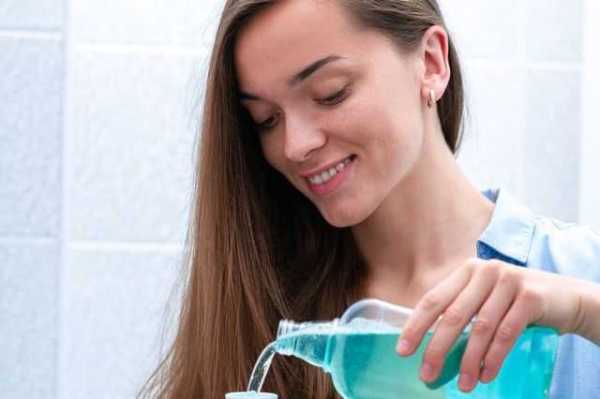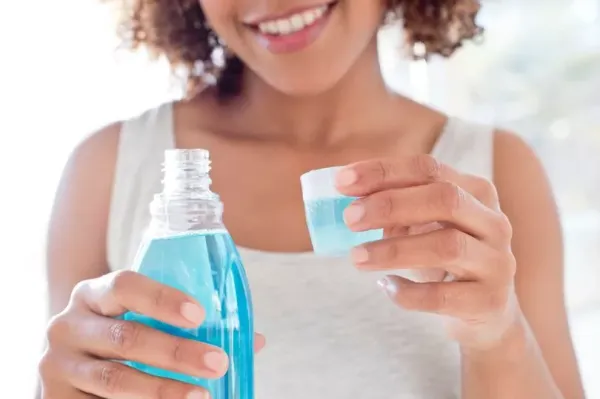
An expert has shared how to prevent mouthwash from staining your teeth and when's best to gargle, as it turns out you shouldn't use mouthwash when brushing your teeth.
Caitlin Miller, head of hygiene and therapy at Bupa Dental Care, explains mouthwash usually has a lower fluoride concentration than toothpaste. As such, you're likely to dilute the fluoride concentration in your mouth if you use mouthwash straight after brushing.
The expert told the : "Mouthwash shouldn't be used for at least 30 minutes after brushing as it can rinse away the beneficial fluoride left from your toothpaste. Using it at another point in the day is more beneficial."
READ MORE:
READ MORE:
Similarly, you should wait at least 30 minutes before using any mouthwash with chlorhexidine as it can cause staining, according to the pro. "To prevent this, you need to use them at least 30 minutes after you brush your teeth and avoid any dark foods or drinks," she says. "It's best to use it last thing at night, as it's generally eight hours until you're going to have any food or drink."
But that's not to warn you off mouthwash entirely. While "you should only use mouthwash if there's a specific need, such as if you’re having orthodontic treatment, or if there's a problem, such as bad breath, gum problems, or decay, or if a health professional has advised you," suggests Caitlin, there are lots of pros if you've been advised to use mouthwash.
The expert explains:

She adds that if you happen to find yourself in a situation where you can't brush your teeth when you ought to, mouthwash could come to the rescue. "While brushing and using interdental brushes should always be the priority, if you find yourself in a situation where you can't brush for a short period of time, for example at a festival where there are limited resources, then rinsing your mouth with a fluoride mouthwash can be a good back up to help kill bacteria, freshen your breath and help fight decay."
When it comes to figuring out the best option for you, Caitlin recommends asking your oral health professional. "For example, you should use a high-fluoride wash if you have braces. Consider using CB12 to neutralise bad breath. For gum disease, you should use a mouthwash like Corsodyl, which is designed to keep gums healthy. My general advice is to use salt and warm water, as it's cleansing and healing and contains no nasty chemicals," she says.
READ MORE:
READ MORE:
Additionally, you'll want to look for certain ingredients when making your selection. "Always opt for a mouthwash that contains fluoride, as this is a crucial ingredient for strengthening teeth and preventing tooth decay," the pro advises. "Fluoride helps in remineralising the enamel and provides protection against further tooth decay. It's also essential to choose a mouthwash from a reputable brand. Make sure to understand what the mouthwash claims to do, so you can select the right one for your specific needs."
Crucially, whether or not you're using mouthwash, don't forget to choose a toothpaste with fluoride. Caitlin concludes: "It's important to use toothpaste that contains fluoride and to avoid rinsing your mouth for at least 30 minutes after brushing. Rinsing immediately after brushing can wash away the fluoride left from the toothpaste. It's recommended to spit out the excess toothpaste instead of rinsing, so that your teeth can benefit from the strengthening properties of fluoride."